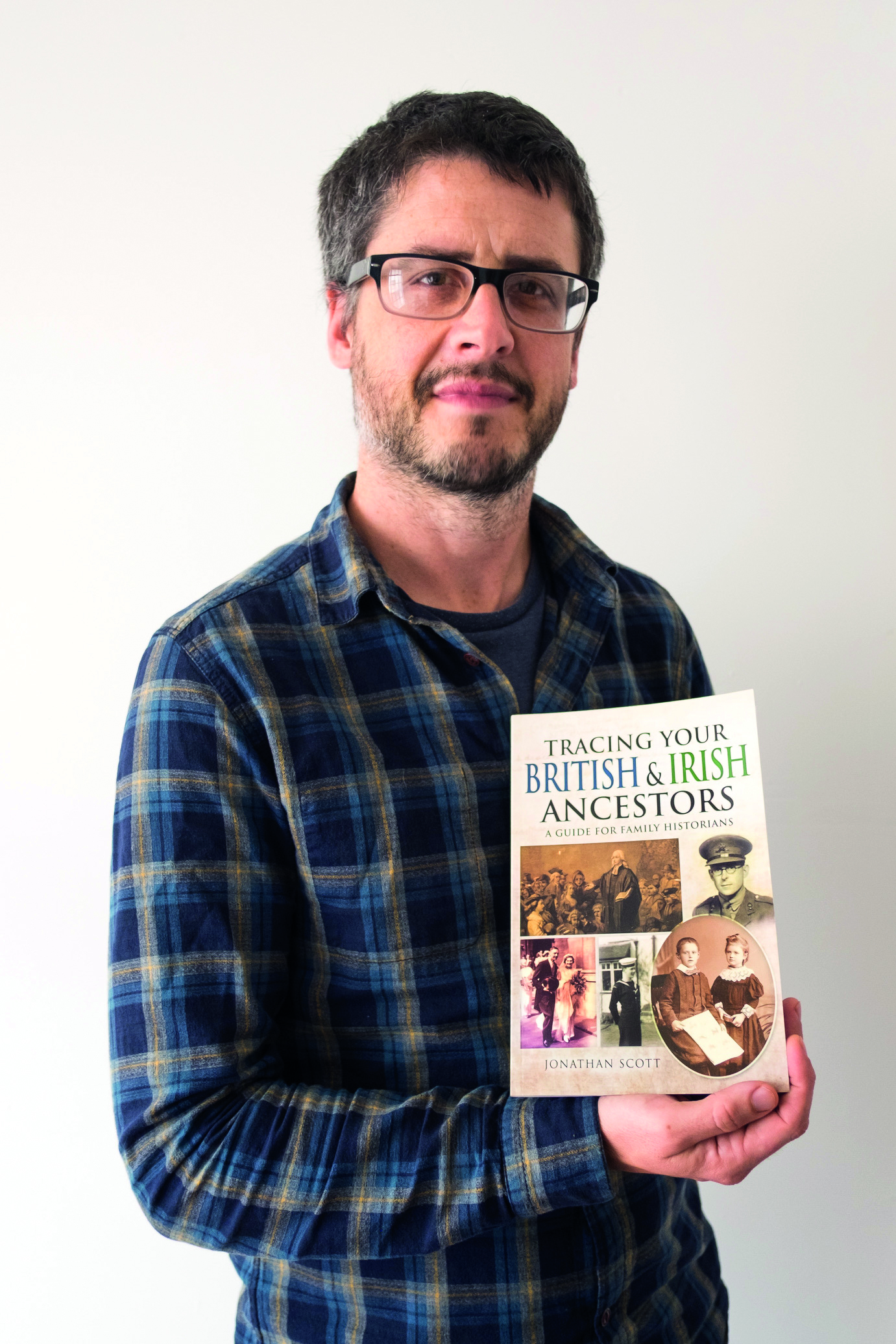How to find old orphanage records and records from children's homes
In the 19th and early 20th centuries, shorter life expectancies meant many of our ancestors would have lost their parents in childhood - and many of them ended up being cared for in orphanages, which were often run by charitable organisations or religious groups. Other orphans were cared for in the workhouse. Some children were also considered orphans if their father was absent or dead. Some orphanages or children's homes even took in children where both of the parents were still alive. You can start tracing your ancestors' orphanage records with the help of these websites.
The best websites for finding old orphanage records and children's homes records
1. Children's Homes
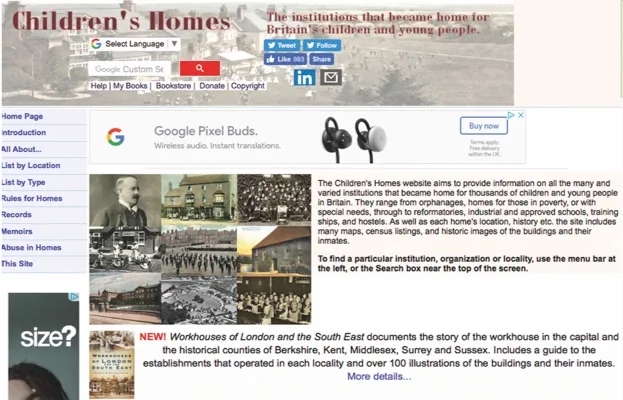
This is an encyclopaedic resource of orphanage and children's home records from social historian Peter Higginbotham.
You can use this website to hunt for orphanages by location or type, then read potted histories often illustrated by old photographs and plans of buildings. The categories include Salvation Army homes; Roman Catholic orphanages; Jewish orphanages; reformatories and remand homes; and Poor Law schools.
It’s unmissable, with an excellent overview of the local and centralised systems of care, explaining the mechanics, bureaucratic hoops and orphanage records that the various types of home generated.
2. Former Children's Homes
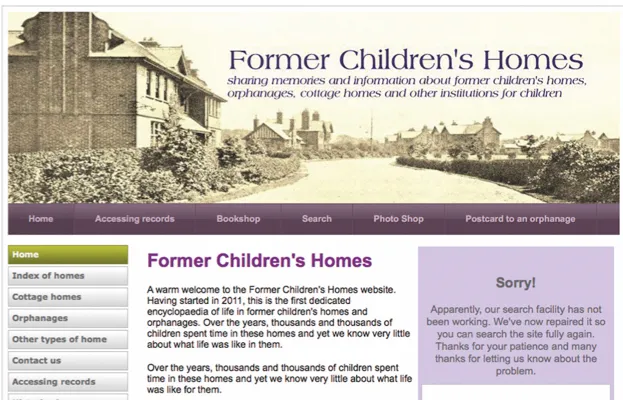
Designed as a hub for sharing memories and information about children’s homes, this site is particularly good for finding obscure orphanage records, such as the Woking Railway Orphanage (also known as the Southern Railway Servants’ Orphanage), for children whose fathers had died during their work on the railways. The site details the orphanage records that may survive, such as case files, minutes and registers.
3. Barnardo's Children
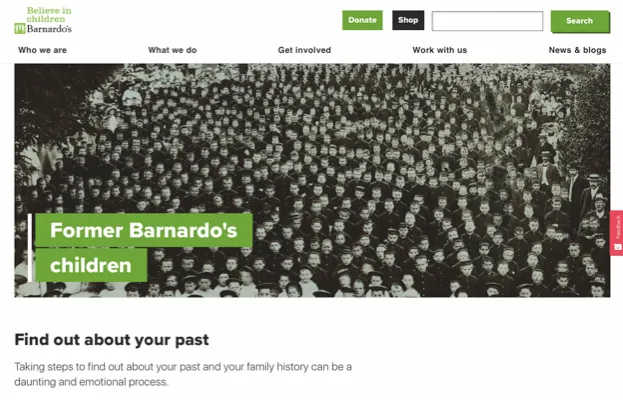
Barnardo’s traces its history back to a ragged school in London's East End, opened by Thomas Barnardo to care for children orphaned by an outbreak of cholera.
A boys’ orphanage at Stepney Causeway opened in 1870, and by the time of his death in 1905, Barnardo’s cared for more than 8,500 children in almost 100 homes.
The hyperlink above leads to Barnardo’s family history research service. They charge a £25 administrative fee for all enquiries about deceased relatives, with additional charges for the records. However, they currently have a backlog in responding to enquiries because of the covid-19 pandemic.
4. British Home Children Registry
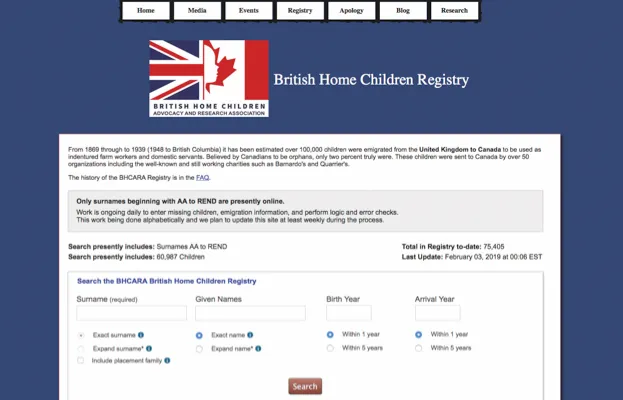
Between 1869 and 1939 100,000 children were sent from various orphanages to Canada in search of a new life, becoming agricultural labourers or domestic servants. They were known as British Home Children. Here you can search a database of British Home Children's orphanage records.
5. The National Archives' Children's Homes guide
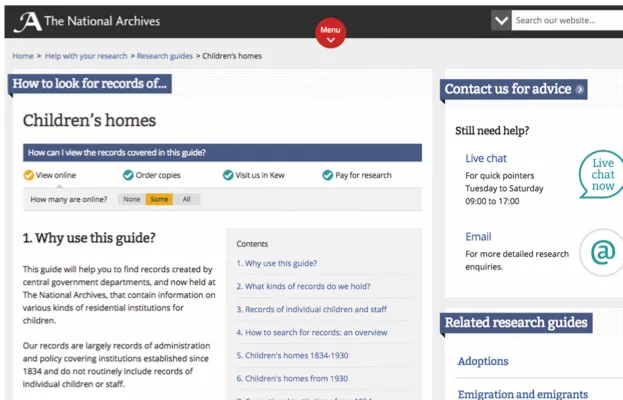
This guide from TNA is more focused on orphanage records created by central government departments than individual children.
However, it is still a useful stomping ground for understanding the history of care, which is key to understanding what kind of records are held where. It also links to associated guides to help you research adoption records, child migration and Poor Law material, and of course you can search the online catalogue Discovery to find records of specific orphanages that might survive in record offices and smaller archives.
6. Expert's choice: Hidden Lives
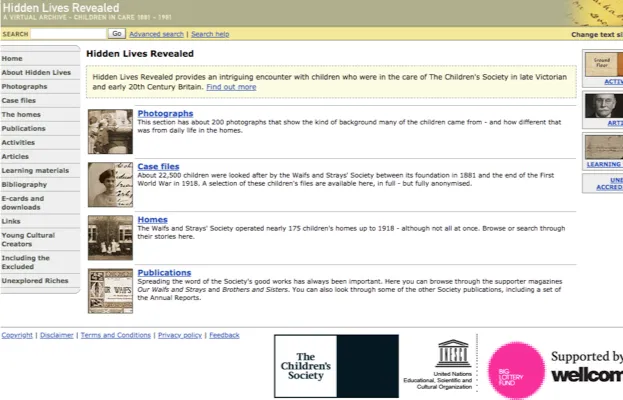
Chosen by Peter Higginbotham, author of Children’s Homes (Pen & Sword, 2017) and Workhouses of London and the South East (History Press, 2019)
"The Hidden Lives website is a treasure trove of orphanage records from the archives of the Children’s Society (originally the Waifs and Strays Society), formerly one of the major providers of children’s homes in Britain.
"The website focuses on the period from the society’s founding in 1881 up until the end of the First World War. Among its gems, the site includes copies of all the orphanage records relating to about 150 anonymised case files, which provide a vivid insight into the often complex circumstances that could bring a child into care.
"Apart from parental death, these included the child’s illegitimacy, neglect, abandonment or homelessness, and the parents’ mental health problems or involvement in matters such as alcohol abuse, domestic violence and prostitution.
"The orphanage records for Case 1109, for example, concerns ‘C’, a boy whose extremely violent father was put into Wells Asylum. C then went to live with his grandfather, who later committed suicide by cutting his own throat. C’s mother was too poor to look after him, so he went into a society home.
"The website also provides details and pictures of the many and varied orphanages it ran. These included rural cottage homes, houses in big cities, and even a country mansion or two. Many of the society’s publications are digitised on the website, including a long run of its monthly magazine Our Waifs and Strays. Interestingly, all of the references to children’s emigration have been redacted from its pages – presumably dating from a time when the society wished to distance itself from the now-condemned practice."
More websites for finding old orphanage records
7. Care Leavers' Association
The website has information about accessing orphanage records, plus lists of local authority contacts for records of council-run homes.
8. Foundling Hospital Archive
Thousands of records from London's famous Foundling Hospital, including records of children who lived there in the 18th and 19th centuries, are now available online.
9. Library and Archives Canada
The Canadian archives website brings together databases and other material, for example passenger lists, that can help you trace orphanage records for any relatives who were sent overseas as children.
10. Müllers Homes
Learn about the Orphan Homes of George Müller, who cared for 10,000 children in Bristol during the 19th century. Staff will search the organisation’s orphanage records for a small fee.
11. Parliamentary Papers
Although only available via library/archive subscriptions, here you can trawl Poor Law reports which include workhouse inspections and records for the orphans who lived there.
12. Ragged School Museum
Visit a museum housed in the former Barnardo’s Copperfield Road Free School in East London.
13. Workhouses.org
Peter Higginbotham’s website is especially good for finding out about individual workhouses, Poor Law unions, and related institutions such as industrial schools and reformatories.
14. Action for Children
Many children's homes were run by national or local charitable or voluntary groups. Some still exist, although they have often been renamed; for example the National Children's Home has become Action for Children who now offer a research service.
15. Ancestry
This commercial site has a collection of admission and discharge registers for some of the large London residential homes run by the capital's Poor Law authorities.
16. Findmypast
Another commercial site with some relevant registers including 'Derbyshire, Derby Railway Servants' Orphanage Registers 1875-1912' and 'Surrey Institutional Records 1788-1939' which contains transcriptions from a number of institutions that cared for orphans and other children.

